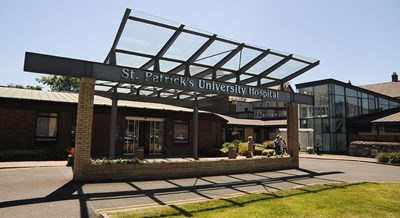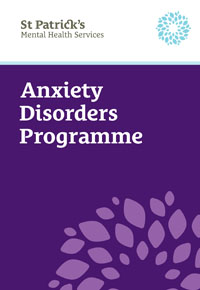In certain cases, high levels of anxiety are considered normal and helpful if they prompt an escape from danger. In situations such as interviews and exams, anxiety can enhance performance.
When anxiety becomes excessive or debilitating, however, it is then considered an Anxiety Disorder. In recent decades, there has been a dramatic improvement in our understanding of anxiety and how it can be treated.
In primary anxiety disorders, the symptoms tend to have followed a set pattern over several months or years. The symptoms occur independently of other mental health problems.
Subtypes of Anxiety Disorder
There are six recognised groups of anxiety disorders:
-
Panic Disorder
Panic Disorder is sudden episodes of acute severe anxiety/panic associated with a fear of death or collapse. The key feature of the disorder is the sudden onset, occurring “out of the blue”, with no identifiable trigger. It can be accompanied with a persistent concern about future attacks and consequences of the attack.
-
Agoraphobia
A fear of being away from a place of safety, often associated with panic. Sufferers can become house-bound or confined to small “safe” areas.
-
Social Anxiety
Excessive anxiety and self-consciousness in social situations with a central fear of being judged negatively harshly or appearing foolish. It leads to avoidance of performance situations as well as hiding away in social gatherings.
-
Generalised Anxiety Disorder (GAD)
A disorder of uncontrolled worrying, spread across numerous everyday themes. Sufferers constantly agonise over what they anticipate might go wrong in the future, causing distress, sleep disturbance and exhaustion.
-
Post-Traumatic Stress Disorder (PTSD)
A carefully defined disorder resulting from a trauma such as a road traffic accident or an assault. Sufferers are troubled with intrusive memories or flash-backs of the incident and they are on a state of high alert.
-
Obsessive Compulsive Disorder (OCD)
A complex and disruptive disorder in which sufferers feel compelled to ward off contamination, disaster or other negative events by carrying out time consuming rituals such as washing, checking or ruminating.
Common obsessions include:
- Fears of getting a disease, e.g. cancer, AIDS
- Fears about dirt, germs and contamination
- Fears of harming others, especially a loved one
- Inordinate concern with order, arrangement or symmetry
- Fears that things are not safe, especially household appliances
Treatment approaches
Anxiety Disorders Programme
Locations
Continue to…
How to access




